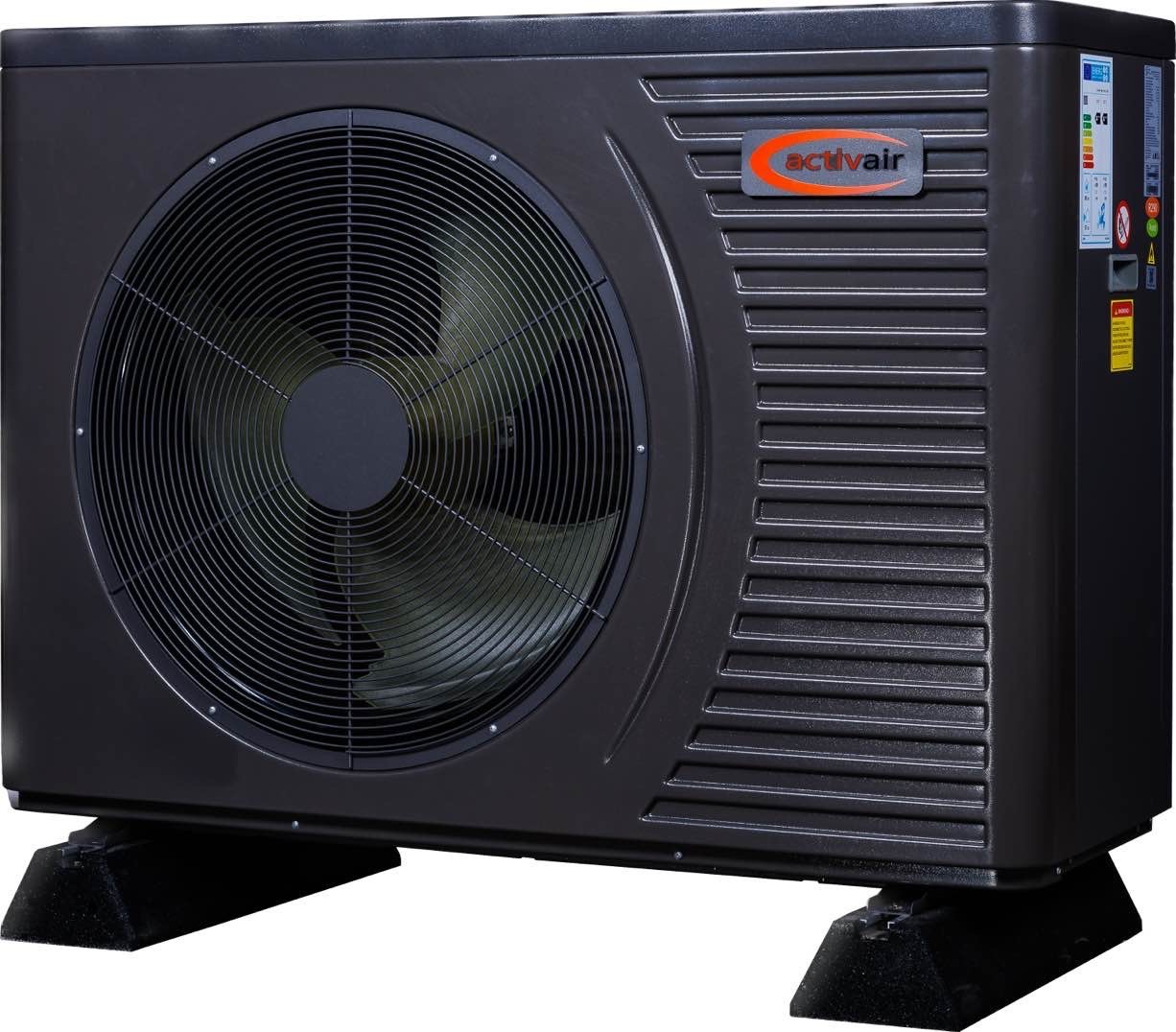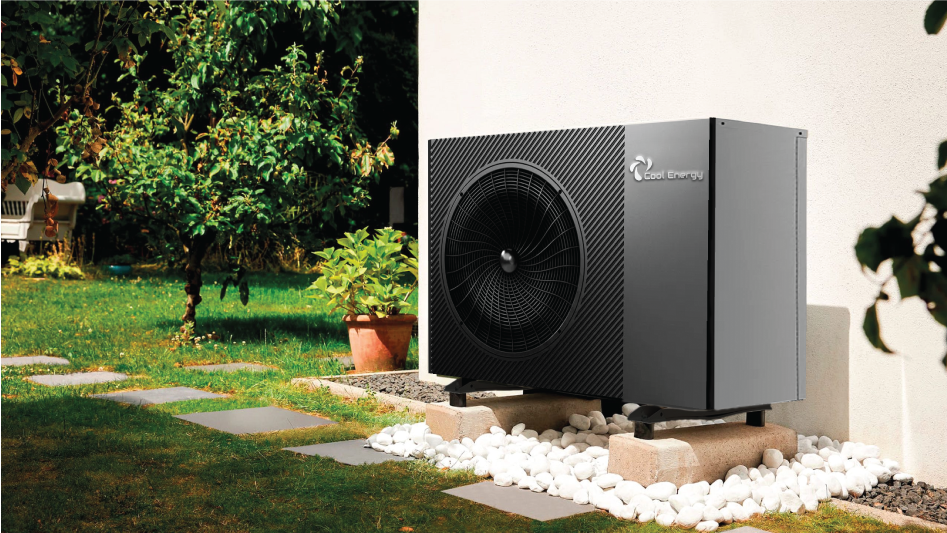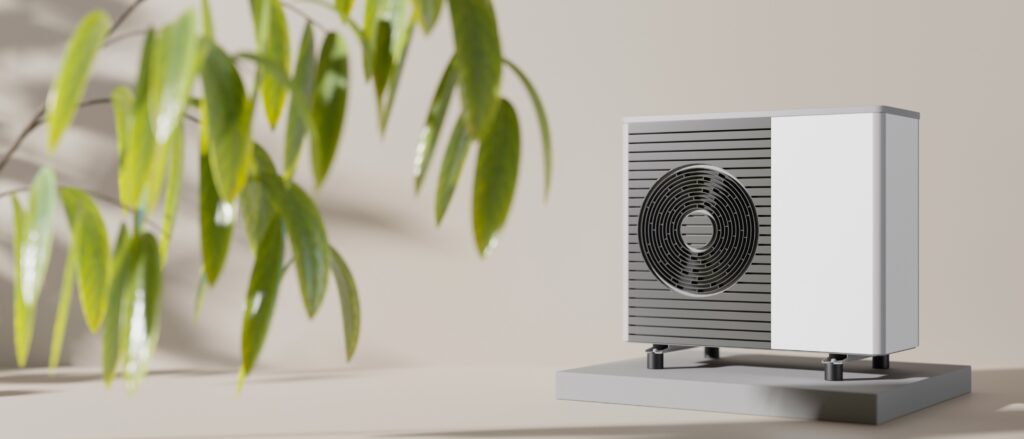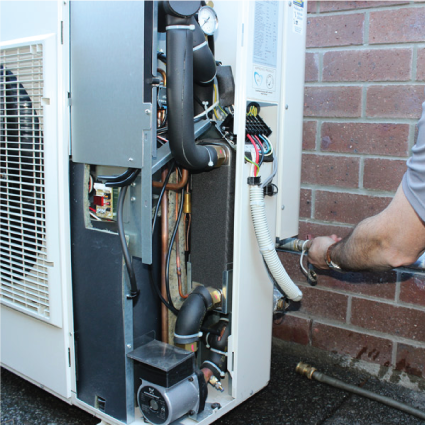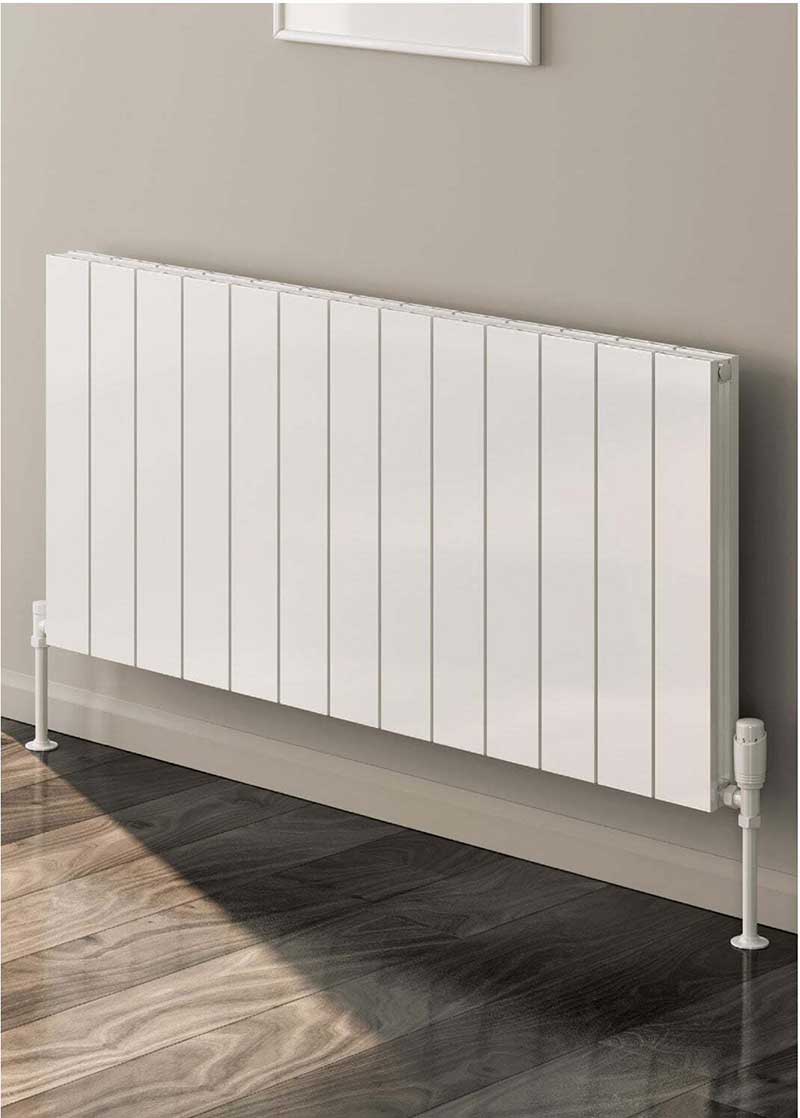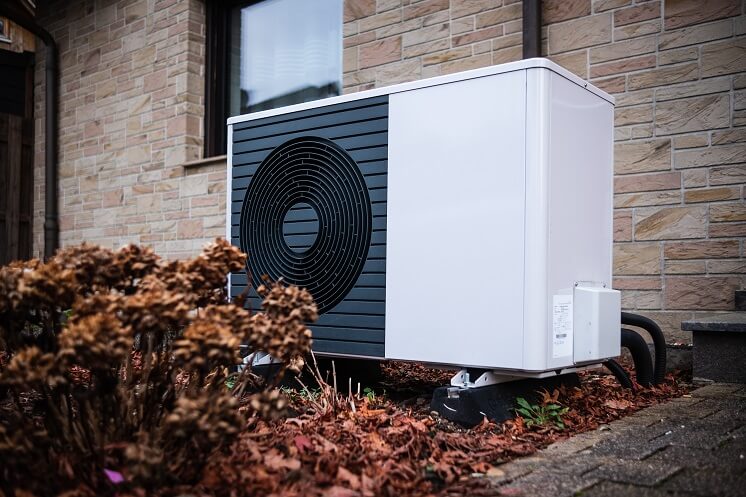- Heat pumps can be connected to your existing radiators
- Heat pumps work best with radiators that are 2.5 times larger than average
- It costs around £250–£500 to install a new large radiator
Gas boilers are set to be prohibited in new homes starting from 2025, as part of the government’s efforts to reduce emissions in the UK. As a result, many homeowners are opting for alternative heating methods, such as air source heat pumps. Despite the higher initial costs associated with heat pumps, they are approximately three times more energy efficient compared to boilers.
The process of installing a heat pump is relatively straightforward, but it may involve more than simply replacing your gas boiler with a heat pump. One potential requirement is the replacement of your radiators with larger ones.
If you are interested in finding an air source heat pump that is suitable for your home, you can complete a form provided by our service. By entering a few details, we will connect you with professional installers who will contact you and offer their best prices.
If you would like to learn more about how air source heat pumps work in conjunction with radiators, please continue reading!
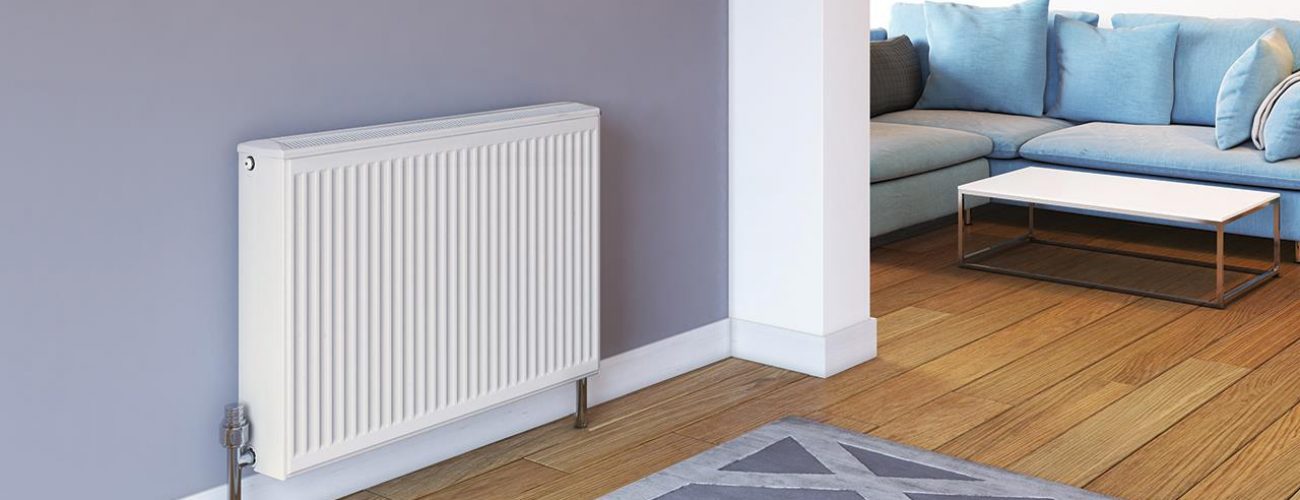
What's on this page?
Can you use an air source heat pump with normal radiators?
Air source heat pumps are compatible with standard radiators. They function by absorbing heat from the outside air and converting it into a fluid. This fluid is then heated using a compressor and distributed to your home’s hot water system.
It is important to note that heat pumps work most effectively with radiators that are 2.5 times larger than the standard size. This is because heat pumps release heat at a slightly lower temperature and at a slower rate compared to boilers. While boilers typically operate at around 60°C, heat pumps operate at approximately 40°C. To ensure optimal heat dispersion and maintain the same level of comfort as a boiler, a larger surface area is required for the radiators.
The material of your radiators is another factor to consider. Aluminium radiators are particularly efficient at releasing heat at lower temperatures compared to steel or cast iron radiators. This is due to the superior heat conductivity of aluminium compared to other metals.
If you are interested in learning more about the costs associated with air source heat pumps, you can visit our page on Air Source Heat Pump Costs.
Do you need to replace your radiators before getting a heat pump?
Most households can anticipate replacing approximately one-third of their radiators. However, it is advisable to have your home evaluated by a professional before proceeding with any modifications.
If your property already has underfloor heating, it is compatible and works well with heat pumps. In such cases, you may not need to make as many alterations to your property. On the other hand, if you do not have underfloor heating, it is important to note that it is typically only feasible to install it on the ground floor. Additionally, underfloor heating is generally more expensive to install compared to radiators, with costs ranging from £2,000 to £10,000.
Furthermore, it is crucial to ensure that your home has adequate insulation to retain the warmth generated by your heat pump. This will enhance the energy efficiency of your home and contribute to reduced energy consumption.
How much bigger do your radiators need to be?
In order to achieve the equivalent heat output of a boiler, your new radiators will need to be approximately 2.5 times larger than the average size when using an air source heat pump. This is due to the fact that air source heat pumps release heat at around 40°C, whereas boilers can reach temperatures of around 60°C. Additionally, heat pumps generate heat at a slower rate compared to boilers. Therefore, a larger surface area is required to achieve the same level of warmth that you would experience with a boiler.
How to work out how many radiators you need to upgrade?
The number of radiators that require upgrading will vary based on the size of your property and the number of rooms that need heating. Typically, when installing heat pumps, only about one-third of the radiators need to be replaced on average.
If you’re not a qualified engineer, it can be challenging to determine this on your own. However, heat pump installers can evaluate your home for a fee of approximately £150, providing you with a better understanding of the necessary upgrades. It’s worth noting that many installers waive this fee if you choose to have them both assess your home and install the heat pump.
How much does it cost to upgrade your radiators before getting a heat pump?
The cost of upgrading your radiators typically ranges from £250 to £500 per large radiator. This can be quite expensive when considering that the installation cost of an air source heat pump is already around £10,000.
However, the government’s Boiler Upgrade Scheme offers a £7,500 reduction in the cost of a new heat pump. Some companies even provide heat pump installation at no cost through this scheme, although the expense of replacing radiators with larger ones is not included.
The total amount you pay will depend on the number of radiators you are replacing and the size of your existing ones. It is also important to consider potential complications during the replacement process, which could increase the overall cost.
If you are concerned about affordability and want to install an air source heat pump, you can find out if you are eligible for any schemes by visiting our page “Are There Government Grants for Air Source Heat Pumps?”
Are high-temperature heat pumps an alternative?
High-temperature heat pumps release heat at approximately 60°C, which is similar to the temperature produced by gas boilers. This similarity in temperature means that there is less need to replace your radiators or install underfloor heating when using a high-temperature heat pump.
However, it’s important to note that the higher level of heat provided by high-temperature heat pumps comes with a higher price tag. These types of heat pumps are approximately 25% more expensive than regular ones, costing around £12,500 compared to the average cost of £10,000 for a regular heat pump. Additionally, high-temperature heat pumps are less energy efficient than regular heat pumps, which can result in higher energy bills compared to using a boiler or a regular heat pump.
To determine which type of heat pump is suitable for your needs, it is recommended to consider the additional costs associated with a high-temperature heat pump in comparison to the cost of installing new radiators for a regular heat pump unit. By weighing these factors, you can make an informed decision about the most suitable option for your heating requirements.
Next steps
Air source heat pumps offer an excellent environmentally friendly solution for heating your home. By choosing a heat pump instead of a gas boiler, you can reduce your home’s carbon emissions by approximately 44% per year. This reduction is significant in contributing to the government’s goal of achieving net zero emissions by 2050. Moreover, with the government’s plan to ban gas boilers in new homes starting from 2025, investing in an air source heat pump now will ensure that you are well-prepared for the future.
While it is true that heat pumps can be expensive, it is important to note that installing one does not necessarily require a complete remodeling of your home. In fact, you may not even need to remove all of your existing radiators. This means that you can enjoy the benefits of a heat pump without significant disruptions to your home.
If you are interested in finding out the cost of installing an air source heat pump, you can fill in a form provided by our service. Once we receive your details, we will connect you with professional installers who will provide personalized quotes tailored to your specific needs. This will help you get a better understanding of the potential costs involved and make an informed decision about installing an air source heat pump.
Find out how much a heat pump would cost you
Complete A Short Form – Receive Free Quotes – Compare & Save
Find out how much a heat pump would cost you
Complete A Short Form – Receive Free Quotes – Compare & Save

